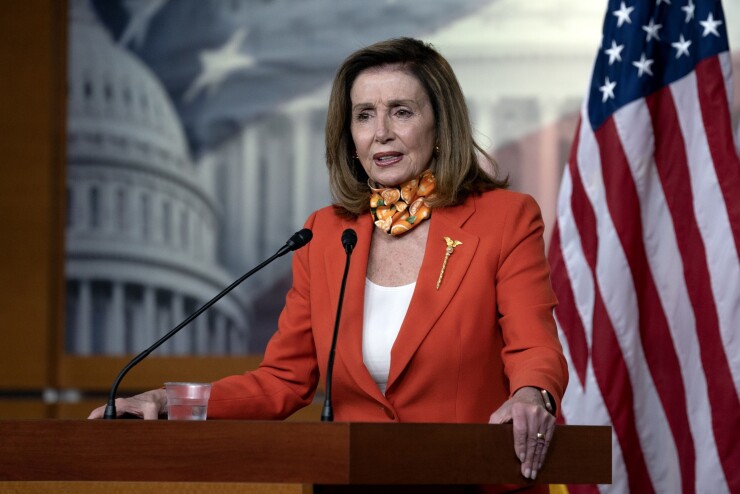
Local government groups are describing the pared-down coronavirus aid package announced Monday by House Democrats as a reasonable compromise that might lead to an agreement with the Trump administration.
The
House Democrats scaled back the $3.4 trillion HEROES Act that has been rejected by Senate Republicans and the Trump administration by $1.2 trillion in large part by limiting the aid to one year.
The new proposal could be a timely lifeline for state and local governments that have exhausted earlier rounds of federal aid and are either currently making budget cuts or planning to do so in the near future.
National League of Cities President Joe Buscaino described the bill as “a positive first step and a reasonable compromise that will help local governments get through the immediate, and short-term fiscal crisis.”
Buscaino, who is president pro tempore of the Los Angeles City Council, said congressional passage of the bill would “begin to put our nation on the road to recovery.”
“However, the road to recovery will be long and cities will continue to face significant revenue shortfalls due to the pandemic well beyond the next year,” the NLC president said.
National Association of Counties Director of Government Affairs Mark Ritacco described the legislation as “a reasonable good compromise.”
“It’s certainly something that we support in terms of the method of distribution to counties,” said Ritacco.
Counties and cities would equally share $179 billion in direct aid to local governments while states would receive $257 billion.
Federal aid to counties would be apportioned based on population while the half designated for cities would be apportioned based on a combination of population and the federal formula for Community Development Block Grants.
“We want something bipartisan,” said the NACo spokesman. “So we hope the overall topline number and the state and local aid number is enough to draw bipartisan support.”
The package announced by Speaker Nancy Pelosi could face revisions if negotiations with Treasury Secretary Steve Mnuchin yield a bipartisan deal.
But if those talks fail, House Democrats are prepared to bring the package for a floor vote this week before adjourning until after the November election.
Under the legislation, states additionally would receive a 14% increase in their Federal Medical Assistance Percentage (FMAP) payments to state Medicaid programs for 12 months starting Oct 1.
The bill also would authorize the District of Columbia to participate in the Federal Reserve’s Municipal Liquidity Facility which it is currently unable to do under the District Home Rule Act.
For hospitals, there would be a temporary 2.5% increase in Medicaid disproportionate share hospital (DSH) allotments.
And there would be an additional $5 billion in Community Development Block Grant funding to provide states and local governments with additional flexible resources to mitigate and address the health and economic impacts of COVID-19.
The proposal also eliminates the $10,000 limitation on the federal deduction for state and local taxes for the 2020 taxable year.
The American Public Transportation Association issued a statement calling the $32 billion in proposed transit aid as “a lifeline for our industry.”
“Without additional emergency funding, many public transit agencies will soon be forced to cut services and routes for essential workers and furlough their workers, leaving our communities without service and jobs when they need them the most, APTA said.
A recent APTA survey found six in 10 public transit systems will need to reduce service and furlough employees in the coming months without emergency federal funding from Congress.
Airports Council International-North America similarly welcomed the proposed $13.5 billion in federal airport aid to soften the impact of the more than $23 billion that airports expect to lose this year.
The bill also would extend the Payroll Support Program to keep airline industry workers paid.
ACI-NA President and CEO Kevin M. Burke said losses will mount if the slowdown in air travel continues.
Other parts of the legislation include $75 billion for coronavirus testing, contact tracing, and isolation measures; a second round of economic impact payments of $1,200 per taxpayer and $500 per dependent; and restoration of the $600 per week Federal Pandemic Unemployment Compensation (FPUC) supplement. Those weekly payments would run retroactively to Sept. 6 and continue through Jan. 31, 2021.
Households receiving food stamps would get a 15% increase to their maximum SNAP benefit.





